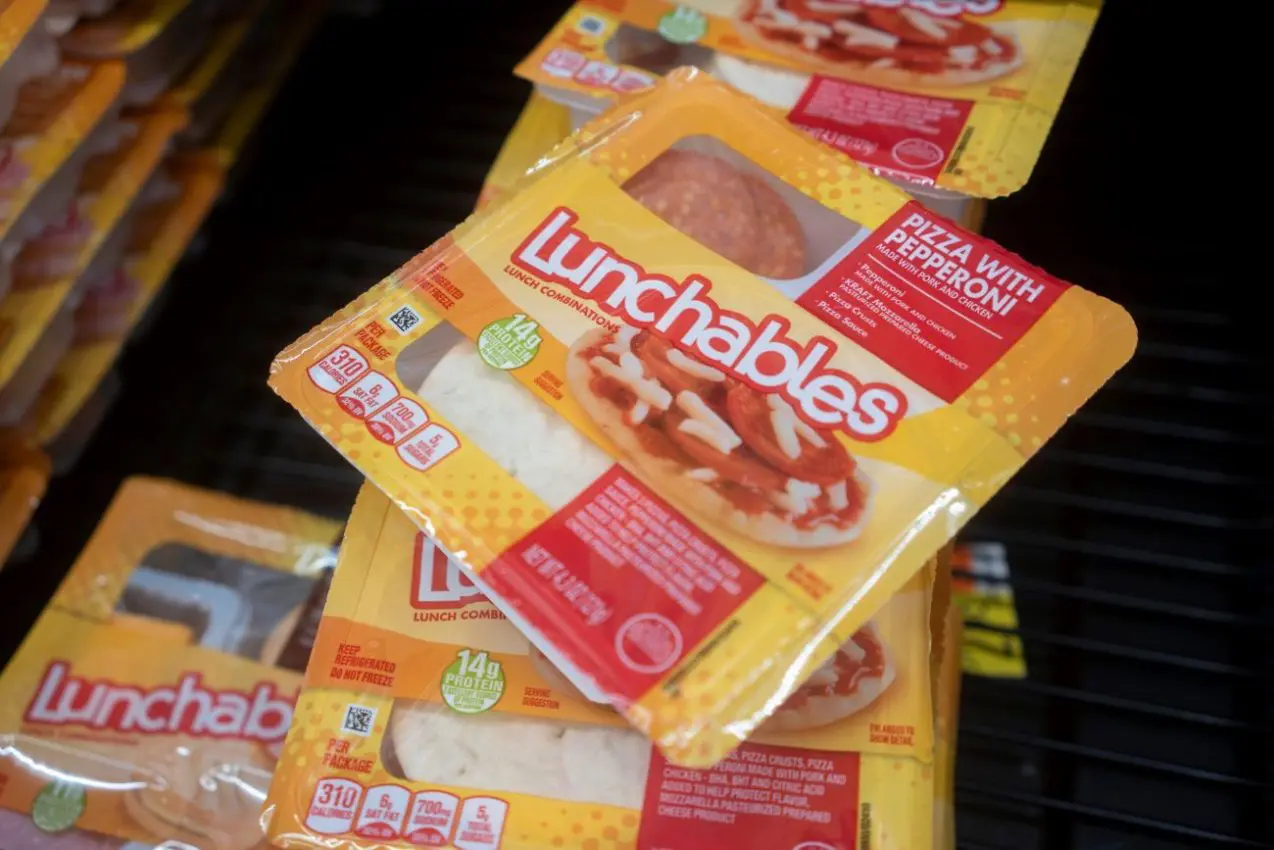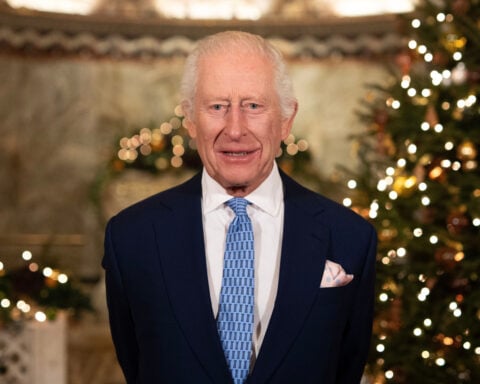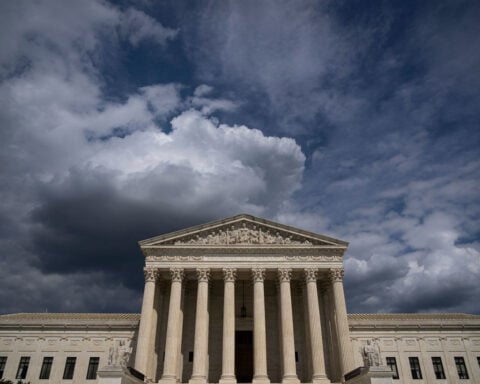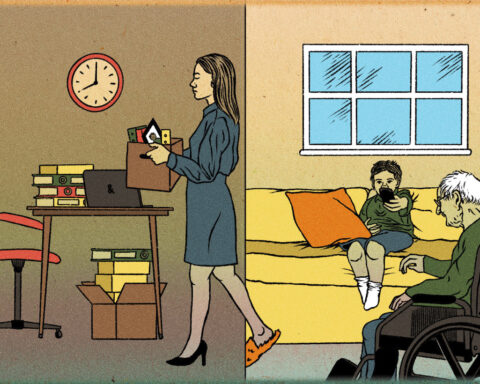The pre-packaged Lunchables, critiqued as promoting highly processed junk food to kids, have become a staple for many students during school lunch. Their journey onto cafeteria trays stems from savvy marketing, industry lobbying, and financial pressures facing school districts.
Synonymous with pre-made convenience foods, Lunchables exploded in popularity after launching in 1988 as a way for Oscar Mayer to market sliced meat and cheese. They gained devotees for letting children assemble their own mini meals.
But nutrition advocates decried Lunchables' lack of whole ingredients. A typical lunch kit pairs cracker sandwiches, cheese slices, deli meat, and candy - adding up to high sodium and saturated fat.
"Lunchables run counter to teaching children about healthy, balanced diets," said American Heart Association CEO Nancy Brown. "We should be promoting nutritious whole foods in schools."
Despite those concerns, Lunchables squeezed their way onto many school menus through aggressive student-targeted marketing and shifting district economics. Their rise coincided with fast food chains also entering cafeterias.
Capitalizing on School Access Major food brands like Oscar Mayer, maker of Lunchables, realized schools offered unique access to impressionable future shoppers. Companies deluged educational facilities with ads and coupons.
"Brands leveraged schools as both a distribution channel and marketing vehicle," explained youth marketing expert Marty Wilke. "It gave companies like Oscar Mayer tremendous reach into students' minds."
Oscar Mayer sponsored in-school TV broadcasts and offered prizes for collecting Lunchables wrappers. The brand estimated 90% of U.S. children recognized Lunchables by the late 1990s.
That success encouraged copycats and ramped up student demands for branded pre-packaged meals. Companies exploited lax nutritional guidelines governing school food.
Facing tight budgets, many districts embraced vendors offering name recognition and easy preparation. But critics argued schools were effectively promoting junk food using taxpayer dollars.
Industry Lobbying Limits Regulation Seeking to protect their access, food giants lobbied aggressively against proposed regulations on school meals.
They helped quash Senator Patrick Leahy's Better Nutrition for School Children Act in 1994, which sought to restrict sugar, salt and fat levels. The industry also defeated efforts in the 2000s to categorize flavored milk as candy.
Lobbying groups like the American Beverage Association and Snack Food Association argued restrictions would raise costs and reduce options for cash-strapped schools. But health advocates countered that letting vendors dictate policy undermined student wellbeing.
The Obama administration's Healthy, Hunger-Free Kids Act of 2010 marked a rare victory for nutrition proponents. It imposed the first caps on calories, sugar, sodium and unhealthy fats in school meals.
Even then, implementation lagged amid industry opposition until a 2018 ruling barred foods lacking whole grain requirements. Only recently have regulators mandated reducing processed items and sodium levels.
Economic Realities Encourage Quick Foods
Finances also drove schools toward easy pre-made foods like Lunchables over freshly prepared meals.
Most districts face rising costs but stagnant federal reimbursement rates, forcing them to feed more kids on limited budgets. Processed foods stretch dollars by reducing labor and spoilage.
"With budgets so tight, many feel they can't afford from-scratch cooking," said School Nutrition Association spokesperson Diane Pratt-Heavner. "Shelf-stable foods help manage those constraints."
Some states prohibit using cafeteria funds for kitchen equipment upgrades or additional staff. And low pay dissuades talented chefs from school food service jobs.
Many experts argue society wrongly treats subsidized school meals as a burden rather than valuing proper student nutrition. Unless that attitude changes, economic factors will continue pushing processed convenience foods.
"We have to invest in healthy school food as an educational necessity," said chef and school meal advocate Alice Waters, "not just a line item."
Despite quality concerns, Lunchables have cemented themselves as a dietary and financial fixture for budget-limited districts. With colorful marketing and minimal prep, they check logistical boxes that many besieged cafeterias struggle to avoid.
But their outsized role shows how far school food has strayed from fresh, balanced meals. Only through updated policies, funding and community support can districts banish Lunchables to students' home pantries.

 India considers cutting personal income tax to lift consumption, sources say
India considers cutting personal income tax to lift consumption, sources say
 Russia arrests 4 suspects accused of plotting to kill top military officers on Ukraine's orders
Russia arrests 4 suspects accused of plotting to kill top military officers on Ukraine's orders
 Azerbaijan observes day of mourning for air crash victims as speculation mount about its cause
Azerbaijan observes day of mourning for air crash victims as speculation mount about its cause
 China's Xi sends condolences over Azerbaijan Airlines plane crash
China's Xi sends condolences over Azerbaijan Airlines plane crash
 UNIFIL urges timely Israeli pullout from south Lebanon under month-old truce deal
UNIFIL urges timely Israeli pullout from south Lebanon under month-old truce deal
 Japan's Nippon Steel extends closing date for U.S. Steel acquisition
Japan's Nippon Steel extends closing date for U.S. Steel acquisition
 BYD contractor denies 'slavery-like conditions' claims by Brazilian authorities
BYD contractor denies 'slavery-like conditions' claims by Brazilian authorities
 Kazakhstan's senate chief: cause of Azerbaijan Airlines plane crash unknown for now
Kazakhstan's senate chief: cause of Azerbaijan Airlines plane crash unknown for now
 Durant and Beal score 27 points each, Suns beat Nuggets 110-100 to close out Christmas slate
Durant and Beal score 27 points each, Suns beat Nuggets 110-100 to close out Christmas slate
 lunchables
lunchables







